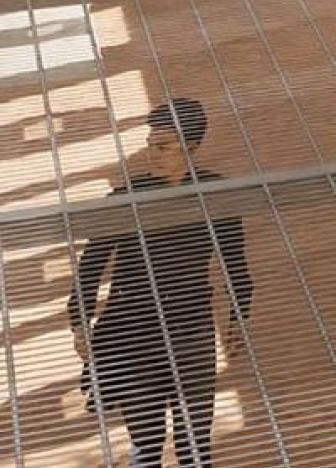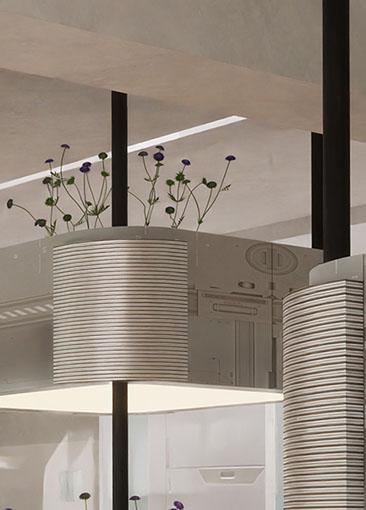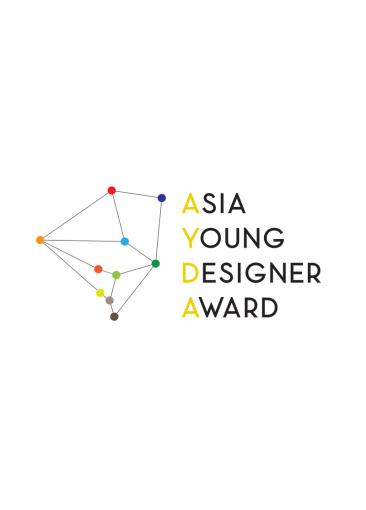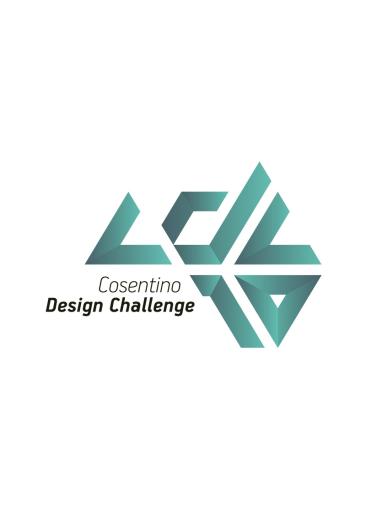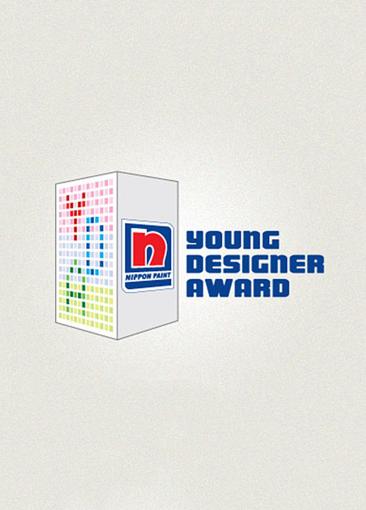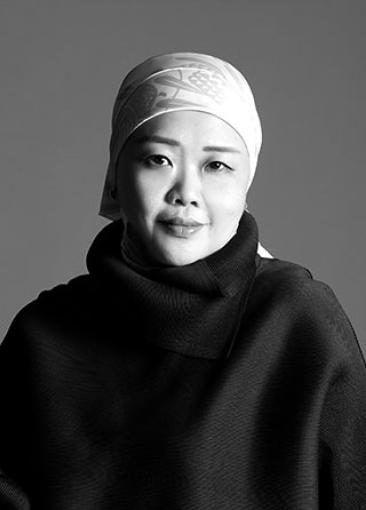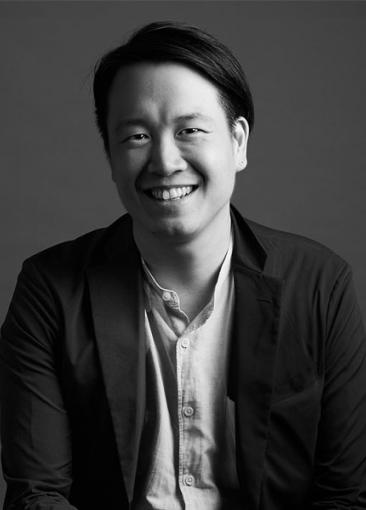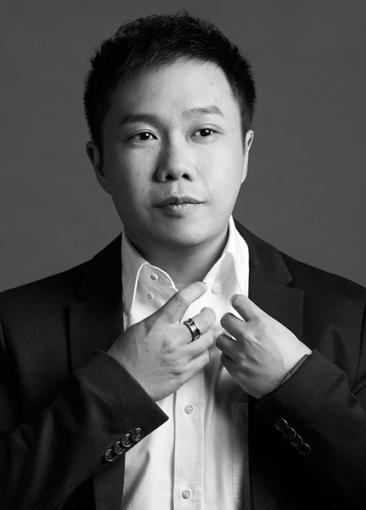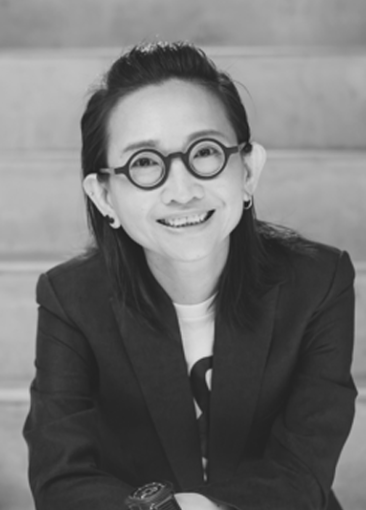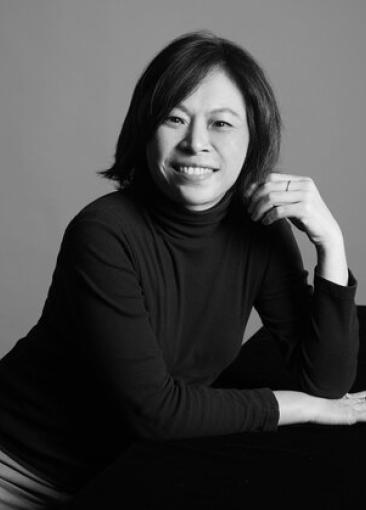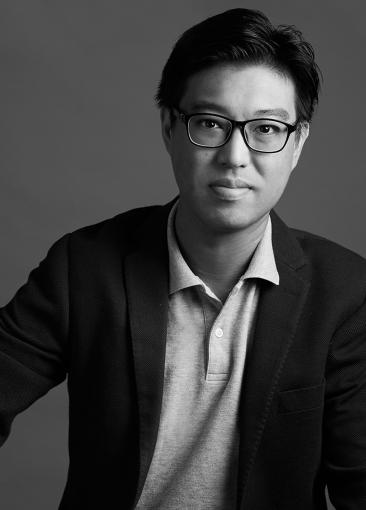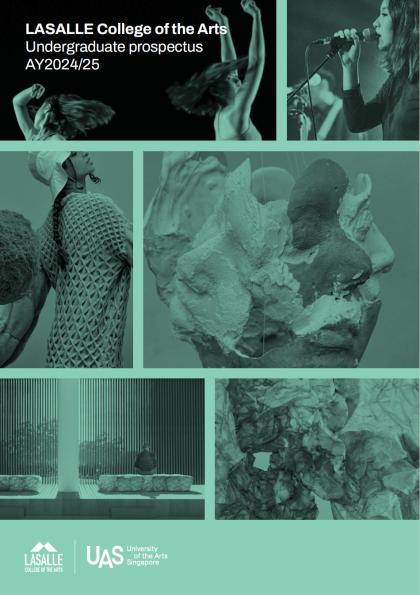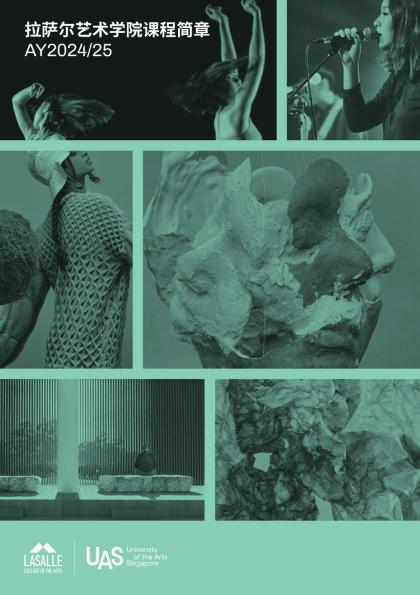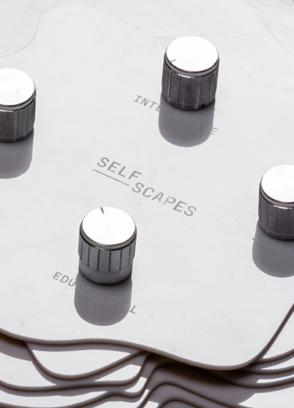Diploma
Interior Design
Interior design is the art and science of creating environments that result from the close examination of human behaviour and emotional connection through space. As a profession, it entails the design and planning of a diverse spectrum of spaces such as residential, retail, F&B, office, healthcare, hospitality and institutional spaces.
The curriculum is based on a number of key design principles where fundamental technical knowledge on building materials and technology, technical skills based on latest software applications for 2D and 3D computer-aided design (CAD) and visualisation, and modelling techniques are taught and honed.
Layered with the knowledge of historical and contemporary design, the programme develops understanding of the built environment while keeping relevant to an industry that sees the expected size of the design workforce projected to expand by 25% from 2021 to 2030.
Employment opportunities in a diverse market sector include large architectural practices to specialised design consultancy firms, builders and suppliers to lighting and furniture design practices.
Pathway structure: Choose to deepen your knowledge with a BA(Hons) in Interior Design or Product Design.
Design-studio culture: Forge strong bonds through a peer environment within a making and learning culture, across shared spaces and collaborative works.
Industry engagement: Be placed within immediate professional environments through internships and global design competitions.
PROGRAMME DETAILS
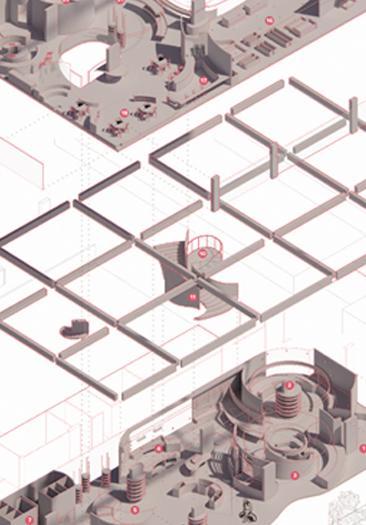
Duration
3 years
Mode
Programme structure
Craft, Techniques and Technologies 1 (30 credits)
This module may include the following components:
- 2D and 3D Visualisation Skills
- Sketching and Observational Drawing
- Manual Drafting and Reading of Technical Drawings
- Perspective and Isometric Drawing
- Model-Making
- Digital Visualisation Techniques
Studio 1 (15 credits)
This module may include the following components:
- Transitional Space Design
- Design Processes, Approaches and Philosophies
Critical Thinking Skills A (15 credits)
Craft, Techniques and Technologies 2 (30 credits)
This module may include the following components:
- Structural Systems and Construction Technology
- Basic Structural Systems: Foundation, Roof, Floor and Wall Systems
- Material Technologies: Timber, Metal, Glass, Plastics, Concrete, Stone, Plaster, Paint and etc
- Interior Joinery and Detailing
- 2D and 3D Computer-Aided Skills such as Photoshop and Autocad and/or the latest equivalents
Studio 2 (15 credits)
This module may include the following components:
- Residential Space Planning and Design
- Unconventional Designs through Form Making
- Ergonomics Studies
World of Ideas and Imagination (15 credits)
Craft, Techniques and Technologies 3 (15 credits)
This module may include the following components:
- Building Services and Material Technologies & Detailing
- Technical Documentation including Design Detailing
- Application of Materials and Elements that form Interior Space
- 3D Computer-Aided Skills such as Google Earth Sketchup, 3D Studio Max, VRay and/or their latest equivalents
Studio 3 (30 credits)
This module may include the following components:
- Commercial Planning and Design
- Efficient Space Planning
- Furnitures, Fixtures, Equipments (FF&E) and Material Proposal
Critical Thinking Skills B (15 credits)
Cross-disciplinary Studio (30 credits)
This module may include the following components:
- Retail Space Planning and Design
- Designing with Branding and Narrative
Electives (15 credits)
Professional Practice and Careers (15 credits)
Engaging Communities (15 credits)
Internship (45 credits)
Communication and Public Presentation Skills (15 credits)
Final Project (45 credits)
This module may include the following components:
- Designing for Communities
- Conceptual Design
*Modules in Level 3 may be offered in either semester or in both semesters. Your Programme Leader will advise you on the modules to be taken before the start of each semester. You will need to take modules equivalent to 60 credits in each semester.
More Information
- Practical Portfolio
- Creative Process Journal
- Technical Folder
- Journal
- Portfolio (Pass/Fail)
The LASALLE Diploma framework is anchored in a professional and self-directed approach, with the aim of nurturing highly-engaged, self-assured student learners of the 21st century.
The Diploma framework has a modular structure which involves the following core modules:
Studio
Studio modules primarily anchor you to a particular field/discipline of study. All Studio modules assess you in writing and ensure adequate historical and theoretical contextualisation are embedded.
Studio modules are sites of creative practice with a focus and approach to allow you to discover, investigate and apply ideas, methods and materials.
The Cross-Disciplinary Studio module focuses on an out-of-the-box learning environment for you to apply your critical thinking skills and develop cross-disciplinary works in the studio.
The Final Project culminates in a major studio work which encourages you to demonstrate your artistic practice, conceptual and technical rigour.
Craft, Techniques and Technologies
The Craft, Techniques and Technologies modules prepare you to appreciate and develop requisite technical skills for your creative work.
The particular emphasis is on honing craft, building strong technique and fluid engagement with digital/technological skills. These will provide you with the necessary 21st century skills to apply to your studio/creative practice.
Critical Thinking Skills, World of Imagination and electives
This set of modules establishes different modes of thinking and creative engagement in an arts school environment.
It aims to expose you to a diversity of learning methods, critical inquiry and approaches to express yourself.
It is envisaged that this approach sets the tone for how you as a LASALLE student are distinctive in your approach to learning and ultimately as a professional.
Allowing the 21st century learner to be self-reflexive, independent and inquisitive is vital. Building on your critical thinking modules, electives will be offered in Year 2 to facilitate you to work in areas outside of your core subjects.
Community Engagement and professional skills
You will undertake a Community Engagement module and be exposed to ways in which the community of your interest can be a source of long-term participation, personal fulfilment and employment, following which you will go on to pursue industry placement opportunities in a discipline-specific field.
Students can opt to do one big placement or two to three short placements. Overseas stints are encouraged. The internship module is accompanied by a Professional Practice and Careers module which gives you the key tools to develop your job preparedness. Here you will be taught about emerging fields, how to be self-employed and network in the sector. Industry professionals and alumni will be invited to mentor you and your peers.
You will also be taught Communications and Presentation Skills. Here, clear and confident public speaking and presentation skills are introduced to prepare you to develop and articulate your brand, articulate an artist statement, develop public speaking skills and develop your social media profile as a professional.
Overall, the Diploma framework will enhance the job preparedness of Diploma graduates through greater opportunities for self-directed and cross-disciplinary learning in addition to dedicated modules to help them hone their career skills.
LASALLE uses a 5–point Grade Point Average (GPA) system, which will be applicable to all students admitted to Year 1 with effect from AY2024/25, to track students’ academic progress throughout their studies.
Students receive letter grades for each module taken. Each grade corresponds to a grade point as shown below:
| Letter grade | Grade point |
|---|---|
| A+. | 5.0 |
| A | 5.0 |
| A- | 4.5 |
| B+ | 4.0 |
| B | 3.5 |
| B- | 3.0 |
| C+ | 2.5 |
| C | 2.0 |
| D+ | 1.5 |
| D | 1.0 |
| F | 0.0 |
The Cumulative Grade Point Average (CGPA) represents the grade point average of all modules attempted by the student. A minimum CGPA of 2.00 is required for graduation.
The computation of CGPA is as follows:
All modules, including repeat attempts, are included in the computation of the CGPA with the exception of modules that are exempted or where students were absent with valid reasons.
The classification of award and corresponding CGPA requirement are as follows:
| CGPA range | Classification of award |
|---|---|
| 4.00 – 5.00 | Diploma with Distinction |
| 2.00 – 3.99 | Diploma |
LASALLE recognises the important role of artists and designers in creating a sustainable and caring world. The curriculum provides opportunities for students to identify and explore issues around sustainability (from ecology and global climate change to the sustainability of their own creative practices and wider cultural communities) and care (for the well-being and advancement of oneself and others).
The College actively encourages students to engage with and investigate these crucial contemporary issues as part of their studies, including through their projects, and critical and creative outputs. Through interdisciplinary learning and strong engagement with these topics, the aim is to empower students to lead the way towards sustainable practices and caring communities within the cultural and creative industries.
Basic materials for learning are provided by the College.
As a developing artist, you are required to have certain items that are personal to you and cannot be shared. Such items include books, dance shoes, rehearsal clothes, safety boots, portable musical instruments, paints, canvas, basic tools, design software, cameras, etc., that will support you through your three-year learning journey. The College does not encourage the purchase of extravagant or costly materials or equipment. Our lecturers can provide you with affordable suggestions.
You are also encouraged to have your own laptop for education. If you do not own one, computer labs are available on campus with requisite software for you to undertake your work.
There may be opportunities for you to undertake extra-curricular study trips to enhance your overall learning. Trips are not compulsory and may incur additional costs.
Interior designer, furniture designer, exhibition designer, stage designer, healthcare or hospitality consultant.
HighLights
- Awards
- News & Events
- Star Alumni
- Features
- Industry Collaborations
Awards
Awards
Academics
Tap into the illustrious minds of our faculty members who are movers and shakers in their own disciplines. They will impart, challenge and encourage, as they share their invaluable expertise and experiences with you.
Admission Information
Important Dates
Start of semester: Aug 2024
For local applicants only:
Apply by 12 May 2024
Note:
Applications for international applicants have closed.
Applications will close once the programme seats have been filled up.
Early Admissions Exercise for August 2025 intake
The Early Admission Exercise (EAE) is an aptitude-based admissions exercise open to graduating O-Level students, final-year Nitec and Higher Nitec students from the Institute of Technical Education and graduating Integrated Programme (IP) / International Baccalaureate (IB) Year 4 students.
This exercise allows students to apply for and receive conditional offers for admission to LASALLE prior to receiving their final grades.
Application period: 1 – 24 May 2024.
Application process:
- Submit an online application here.
- Upon completing your online application and application fee payment, proceed to upload your supporting documents after 1 to 2 working days.
- To access the supporting documents checklist, click here.
Applicants will be notified of their application outcome via email by July 2024. Successful applicants should confirm acceptance of their offers by the stipulated deadline. Applicants who accept their offers at this stage will be guaranteed a place, as long as they meet the criteria stated under entry requirements for each programme.
For Diploma in Animation, Diploma Audio Production, Diploma in Broadcast Media and Diploma in Music:
Please refer to the section ‘Admission Information’ under each programme for more information about the portfolio/audition files guidelines.
For all other Diploma programmes:
Workshops will be conducted between 31 May – 7 June 2024. More details will be provided once we have received your application.
ACADEMIC REQUIREMENTS
| Qualifications | Remarks |
|---|
The qualifications listed below are common entry qualifications submitted by applicants.
- Singapore-Cambridge GCE O-Level with a pass in English at Grade C6 or better, and an aggregate score of 25 points or better in four other GCE O-Level subjects
- GCSE/IGCSE (five subject passes, including English, at Grade 9-4)
- Full-time Higher Nitec/Nitec
- Singapore Integrated Programme (successfully completed Year 4 or higher)
| Entry into | IELTS Academic | TOEFL (iBT) | PTE Academic | Duolingo English Test |
|---|---|---|---|---|
| Diploma | 5.5 | 71 | 42 | 95 |
ADMISSIONS TEST/PORTFOLIO REQUIREMENTS/AUDITION REQUIREMENTS
Admissions test or portfolio
You are required to either take an admissions test or submit a portfolio.
Option 1: Admissions test
- The admissions test is only available to applicants from Singapore and in selected cities in China, India, Indonesia, Malaysia, Vietnam and Myanmar, subject to availability of test schedules. You will be notified of the required materials to bring along for the admissions test.
Option 2: Portfolio
- Your portfolio should contain 10–15 pieces of original work from at least two of the following categories: paintings, drawings, collages, posters, sculptures, digital images (Photoshop, Illustrator, etc), photographs, and/or video clips. These works should demonstrate your creative development and process and be created solely by you (not from a photograph, magazine or copied from a reproduction of another source).
- You are required to upload your portfolio online and label each work as follows:
(i) Title of your work (if any)
(ii) Medium used
(iii) Month/year created
If we wish to know more about your artwork from the admissions test or your portfolio, we will arrange for a discussion with you.
Tuition Fees
DIPLOMA TUITION FEES FOR AUGUST 2024 INTAKE (PER ANNUM FEES)
| FUNDED (SUBSIDISED FEES) | NON-FUNDED (FULL FEES) | |||||
|---|---|---|---|---|---|---|
| Singaporeans (aged below 40 years) | Singaporeans (aged 40 years and above) | Singapore PR | International | Singaporeans | Singapore PR | International |
| S$5,440 | S$3,627 | S$7,090* | S$10,740* | S$19,936 | S$22,193 | S$24,973 |
* Singapore PRs and International students who choose to take up the Tuition Grant (TG) will need to make an online application and then sign the TG Deed with the Government of Singapore. Under the terms of the TG Deed, you will be required to work for a Singapore entity for a period of three years upon graduation. For more information, visit tgonline.moe.gov.sg.
NOTE
- Funded/subsidised fees for Singaporeans and Singapore PR qualify for GST subsidy from MOE, all other fees include 9% GST in 2024.
- Fees are due on the first day of each semester.
- Fees are subject to change.
- Correct as of August 2023.
Application Fees
A non-refundable application fee (inclusive of GST*) is chargeable per application. Application is only complete upon receipt of your application fee and all necessary documents. Please ensure your application fee is paid and documents are uploaded after you have received an email that your applicant profile has been created. LASALLE reserves the right to withdraw the applicant if the application fee remains unpaid and documents are not received by the due date.
* GST is at 8% from 2023 and 9% from 2024.
| Singaporean / Singapore Permanent Resident applicants | S$60 |
|---|---|
| International applicants | S$120 |
ACCEPTED MODES OF PAYMENT
All payment to LASALLE must be made in Singapore Dollar. In line with the Singapore government's move towards a cashless society, online payments are strongly encouraged. Below are the payment modes acceptable by LASALLE.
| Payment method | Payment mode |
|---|---|
| A. Online payment |
|
| B. SAM (kiosk, web or mobile)/Singapore Post |
|
Additional Costs
Basic materials for learning are provided by the College.
As a developing artist, you are required to have certain items that are personal to you and cannot be shared. Such items include books, dance shoes, rehearsal clothes, safety boots, portable musical instruments, paints, canvas, basic tools, design software, cameras, etc., that will support you through your three-year learning journey. The College does not encourage the purchase of extravagant or costly materials or equipment. Our lecturers can provide you with affordable suggestions.
You are also encouraged to have your own laptop for education. If you do not own one, computer labs are available on campus with requisite software for you to undertake your work.
There may be opportunities for you to undertake extra-curricular study trips to enhance your overall learning. Trips are not compulsory and may incur additional costs.
MORE INFORMATION
All full-time students of LASALLE are required to be covered under the Medical Insurance Scheme (MIS). The annual coverage of S$20,000 includes school-related activities throughout the programme duration.
The current premium rate is $29.70 (inclusive of 8% GST) payable each semester. This premium rate is subject to change based on the prevailing premiums charged by the insurer and prevailing GST rate.
SCHOLARSHIPS
In recognition of outstanding academic excellence, leadership potential, and a passion for creativity and innovation, LASALLE offers a variety of scholarships to new and current students.
Application dates for scholarships will be reflected in the various scholarship pages. Other externally sponsored scholarships are also available to students. Enquiries and applications may be directed to the respective organisations.
Please note that miscellaneous fees are not covered by scholarships, bursaries or the Mendaki Tertiary Tuition Fee Subsidy (TTFS).
View scholarships offeredFINANCIAL SUPPORT
We are committed to providing a quality education for all our students, and believe that no deserving student should be denied admission because of financial difficulty.
A range of financial assistance schemes, grants and loans are made available to help meet a portion of the educational expenses of students.
Application dates for financial assistance will be reflected in the various bursary pages.
Please note that miscellaneous fees are not covered by scholarships, bursaries or the Mendaki Tertiary Tuition Fee Subsidy (TTFS).
View bursaries offeredGOVERNMENT LOAN SCHEME
Students who are Singapore Citizens or Singapore Permanent Residents and on Tuition Grant are eligible to apply for Tuition Fee Loan of up to 90% (degree) or 75% (diploma) of the programme fees. Application opens in October each year. Please contact the Division of Finance (finance@lasalle.edu.sg) for more details.
View Government Loan Scheme details

